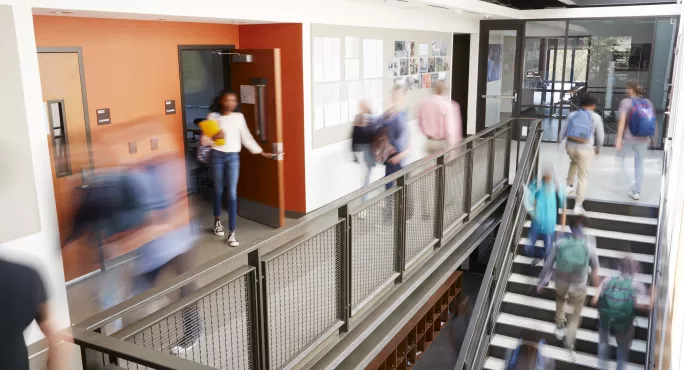
5 ways to help pupils settle back into school life

Being in school is what all teachers want - and pupils, too, even if they don’t always realise it.
However, during the pandemic time in school is not the same and requires even more focus on pupil wellbeing and ensuring that any warning signs or changes in behaviour are spotted.
It is important, too, that pupils know they can talk to someone and share their feeling,s and that teachers understand this is not a normal time and what they can do to help pupils.
Schools reopening: Focusing on wellbeing and pastoral care
1. Make sure teachers are informed
Making sure that teachers know the signs to look out for and how to deal with them is key.
One thing we have done is use our homeroom teachers (tutors) to make weekly time with individual students or small groups, to talk and find out how things are.
This normally can take around 10 minutes, during the homeroom/pastoral/tutor time.
This time is also for academic mentoring and sometimes this can be a good way into pastoral conversations, too: students don’t always want that sort of conversation openly but they like to know they are valued and heard.
To help with this, our weekly teaching and learning briefings and CPD this year have been around sharing ideas to support student wellbeing, including signs of concerns to look for, how to pass concerns on through the appropriate channels and loose scripts that we can use for discussion.
2. Assemblies
Students have been instrumental in taking weekly assemblies so they can be seen by the whole school, share the collective theme and values and get across key messages, and we can make sure everyone gets noticed.
For example, staff and students made a huge success of “Kindness Week”, promoting ideas of how we looked out for each other, how we could all make an act of kindness, referencing what formal and informal support there is in school.
This has been important in making sure they recognise that school is not just a place to learn but a community and a place where they can talk openly and have a voice.
3. Student voice
Following on from this, our student councils and forum have kept running so that students continue to feel they are listened to and have influence and agency in the school.
We have even got a student representative on the DLP to make sure their voices are noticed.
This has felt especially important over the past few weeks to ensure they know that teachers are aware of how they are feeling about the pandemic and their concerns. And the students know what we can do to help them.
4. Student support services
Never has it been more important to work with individual students and groups of students and to ensure that families are also supported by head of year, house or equivalent.
Teachers play their vital part in systems of attendance, keeping students online engaged in learning so students don’t fall through the net, avoiding the risk of them not getting noticed in the changed school system.
We still send home the reward/praise certificates for achievement and recognition, and this has a huge impact on student self-esteem, wellbeing and pride.
5. Wider school curriculum
Even though we had to lose our formal after-school clubs and competitive physical team events, there are many ways in which “normal school life” can continue to enrich and engage all students.
We had a talent show and public speaking competition in school, which were huge successes, and the student council has been planning a “battle of the bands” and an eisteddfod-style poetry and creativity day linked to my old school back in Wales, Crickhowell High School.
All in all, having fun and not always talking about the crisis is very important - something that, if it can continue in school, definitely should.
My daughter’s school held a wonderful home “bake-off” recently - it was so much fun and I hadn’t seen her smile like that for a long time. She was smiling because she was being noticed, she felt involved, safe and happy, and was enjoying being in her school, not forgotten but noticed.
Overall, it’s about recognising that pupils have been through a lot and that while most will be resilient and enjoy a form of normality back in school, the systems that support those who have found it harder need to be there to support them - and teachers need to be confident in using them.
Rob Ford is director of Heritage International School in Chisinau, Moldova
You need a Tes subscription to read this article
Subscribe now to read this article and get other subscriber-only content:
- Unlimited access to all Tes magazine content
- Exclusive subscriber-only stories
- Award-winning email newsletters
- Unlimited access to all Tes magazine content
- Exclusive subscriber-only stories
- Award-winning email newsletters
You need a subscription to read this article
Subscribe now to read this article and get other subscriber-only content, including:
- Unlimited access to all Tes magazine content
- Exclusive subscriber-only stories
- Award-winning email newsletters
- Unlimited access to all Tes magazine content
- Exclusive subscriber-only stories
- Award-winning email newsletters
